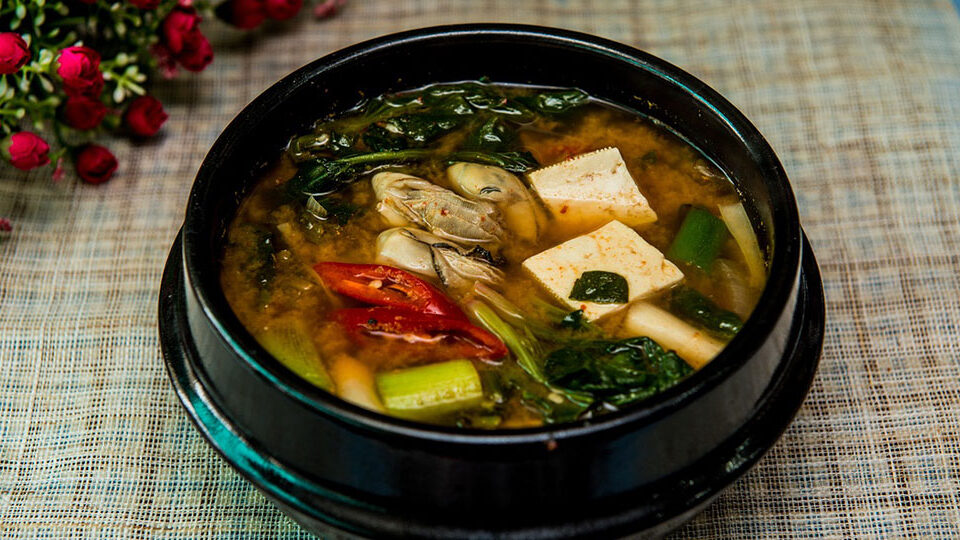Vegetarian Recipes
Vegetarian recipes exclude meat, poultry, and seafood, focusing instead on plant-based foods such as fruits and nuts, vegetables, grains, legumes, mushrooms, and seeds. It promotes health benefits like reduced risk of chronic diseases, lower environmental impact, and ethical considerations regarding animal welfare. Vegetarianism offers diverse culinary possibilities with nutritious and flavorful meals while accommodating various dietary preferences and lifestyles. You can find vegetarian recipes on this blog to cook your favorite.
Find Vegetarian Recipes to Spark Your Cooking Ideas!
Why do people find vegetarian recipes?
The Health Benefits of a Plant-Based Diet
In recent years, vegetarianism has gained significant popularity worldwide. This shift is driven by growing awareness of health, environmental sustainability, and ethical concerns. As more people explore plant-based diets, finding delicious vegetarian recipes has become a culinary adventure. Moreover, it’s not just about replacing meat; it’s about discovering new flavors, textures, and nutritional possibilities that enhance our lives.
One primary motivation for seeking vegetarian recipes is the health benefits of a plant-based diet. For instance, studies show that diets rich in fruits, vegetables, legumes, and whole grains can reduce the risk of chronic diseases like heart disease, diabetes, and certain cancers. Furthermore, vegetarian recipes often use nutrient-dense ingredients, offering essential vitamins, minerals, and antioxidants that support overall health.
For example, a simple vegetarian stir-fry with colorful vegetables, tofu, and brown rice is a nutritional powerhouse. The vegetables provide fiber, vitamins A and C, and various phytonutrients. Meanwhile, tofu offers high-quality plant protein and minerals like calcium and iron. Therefore, incorporating such recipes into one’s diet leads to meals that are both delicious and healthy.
Environmental and Ethical Considerations
In addition to health benefits, the search for vegetarian recipes is also motivated by environmental concerns. Meat production significantly impacts the environment, contributing to deforestation, water scarcity, and greenhouse gas emissions. Consequently, by choosing vegetarian meals, people can reduce their carbon footprint and help preserve natural resources.
Additionally, using seasonal, locally-sourced ingredients in vegetarian recipes can enhance their environmental benefits. For instance, a summer salad made with fresh, local tomatoes, cucumbers, and leafy greens supports local agriculture and minimizes energy use. Thus, embracing vegetarian recipes that align with sustainability helps make a positive impact on the planet.
Ethical considerations also drive interest in vegetarian recipes. Many people adopt a vegetarian lifestyle to prevent harm to animals. Vegetarian recipes, therefore, offer a wide variety of meals without involving practices some find ethically troubling.
Today, the abundance of vegetarian recipes makes it easier to enjoy a diet that aligns with ethical beliefs. From hearty lentil soups to plant-based burgers, the options are endless. Indeed, these recipes show that it’s possible to eat well while adhering to ethical principles.
Exploring Global Vegetarian Cuisine
Moreover, a vegetarian diet encourages creativity in the kitchen. Cooks can experiment with a wide range of ingredients and techniques. Vegetarian cuisine is diverse, drawing inspiration from global cultures.
For example, Indian cuisine offers a wealth of vegetarian dishes, from spicy curries to savory dosas. Similarly, Mediterranean dishes like falafel, hummus, and roasted vegetables showcase the richness of plant-based ingredients. Even classic comfort foods like pasta and pizza can be reinvented with fresh vegetables, herbs, and plant-based cheeses.
In the digital age, finding vegetarian recipes is easier than ever. A quick online search yields countless blogs, websites, and social media accounts focused on vegetarian cooking. Furthermore, numerous cookbooks cater to vegetarian diets, offering recipes from simple meals to gourmet dishes. With so many resources available, anyone can find vegetarian recipes to suit their tastes and dietary needs.
Benefits Of Vegetarian Meals
Nutritional Excellence
Weight Management
Environmental Sustainability
Cultural and Culinary Diversity
Heart Health
Reduced Risk of Chronic Diseases
Ethical Considerations
Global Food Security
How to find vegetarian recipes?
- Search Online: Use recipe websites like AllRecipes, BBC Good Food, and Minimalist Baker. Recipe aggregators like Yummly also offer filtered searches for vegetarian options.
- Explore Cooking Blogs: Visit vegetarian food blogs such as Oh She Glows and Cookie and Kate for diverse and creative recipes.
- Use Recipe Apps: Apps like Tasty and Forks Over Knives provide a range of vegetarian recipes with easy-to-follow instructions.
- Check Cookbooks: Look for vegetarian cookbooks like “Plenty” by Yotam Ottolenghi or “The Complete Vegetarian Cookbook” by America’s Test Kitchen.
- Browse Social Media: Search hashtags like #vegetarianrecipes on Instagram and Pinterest for inspiration.
- Join Communities: Participate in online forums or local cooking groups dedicated to vegetarian cuisine for recipe ideas and tips.












